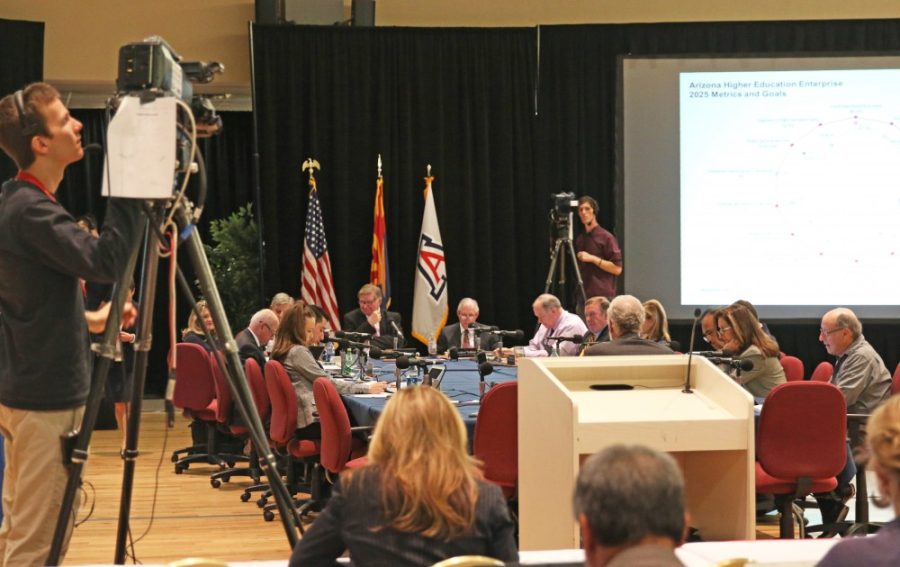Starting this fall, any former or current foster care youth under 23 years old who has been in the foster care system since the age of 14 will be eligible for a tuition waiver for any Arizona university or college. This tuition waiver that the state is offering could potentially cover all costs of college for former foster care students.
The existing Arizona bill, HB 2061, previously stated that foster care youth needed to be over the age of 16 in order to qualify. The adjustment in age criteria passed through Arizona legislatures in April, making the tuition waiver available now to even more foster care youth that are pursuing higher education in Arizona.
“Lowering the eligibility age for the Arizona Tuition Waiver from 16 to 14 allows more students who fall into the independent student category, based on having been in foster care, to access the Arizona Tuition Waiver,” said Erika Klotz, post-secondary program coordinator of the Arizona Friends of Foster Children Foundation.
The Arizona Friends of Foster Children Foundation is an organization that assists foster care youth with not only information about the tuition waiver, but other resources available to them as well.
Klotz, who works directly with foster care youth through the foundation, says that saving for college is more difficult for those that have been in the system.
“My personal opinion is that the lowering of the age for eligibility assists more families who went through [the Department of Child Safety] involvement when their child was an adolescent, families who became legal guardians of adolescent and families who adopted adolescents,” Klotz said. “Due to such circumstances, those families may not have been able to adequately save for college for the student.”
RELATED: ABOR sets lobbying positions for the state legislature
The University of Arizona also offers resources that cater to incoming and current students that have been in the foster care system, one being the Fostering Success program located on campus.
“The UA Fostering Success program supports students that have experienced the foster care system or housing insecurity or are considered unaccompanied youth through peer mentoring and connections to on and off campus resources and services,” Dani Carrillo, program coordinator, said.
The Fostering Success program also assists students with obtaining the assistance and information needed to learn more about how to pay for college and cover educational costs.
“I think any form of assistance we can give to youth that are working toward their educational goals is a good thing,” Carillo said. “Although this change in the tuition waiver eligibility is going to open the door for more youth that have had some significant barriers put in their way, I’d love to see attention be put toward the other end of the age spectrum.”
Foster care youth being aware of the financial assistance they can qualify for can potentially encourage them to seek higher education, according to Lorena Villalobos, a behavioral health coordinator from Casa de Los Niños.
“The majority of the families that end up adopting these children are kinship,” Villalobos said. “I currently work with kinship families that have recently adopted and are lower income, and I have seen them struggle financially, so tuition waiver would be beneficial and motivate the kiddos to go get higher education. I think that all children with foster care involvement should receive it regardless of their age.”
Follow the Daily Wildcat on Twitter









